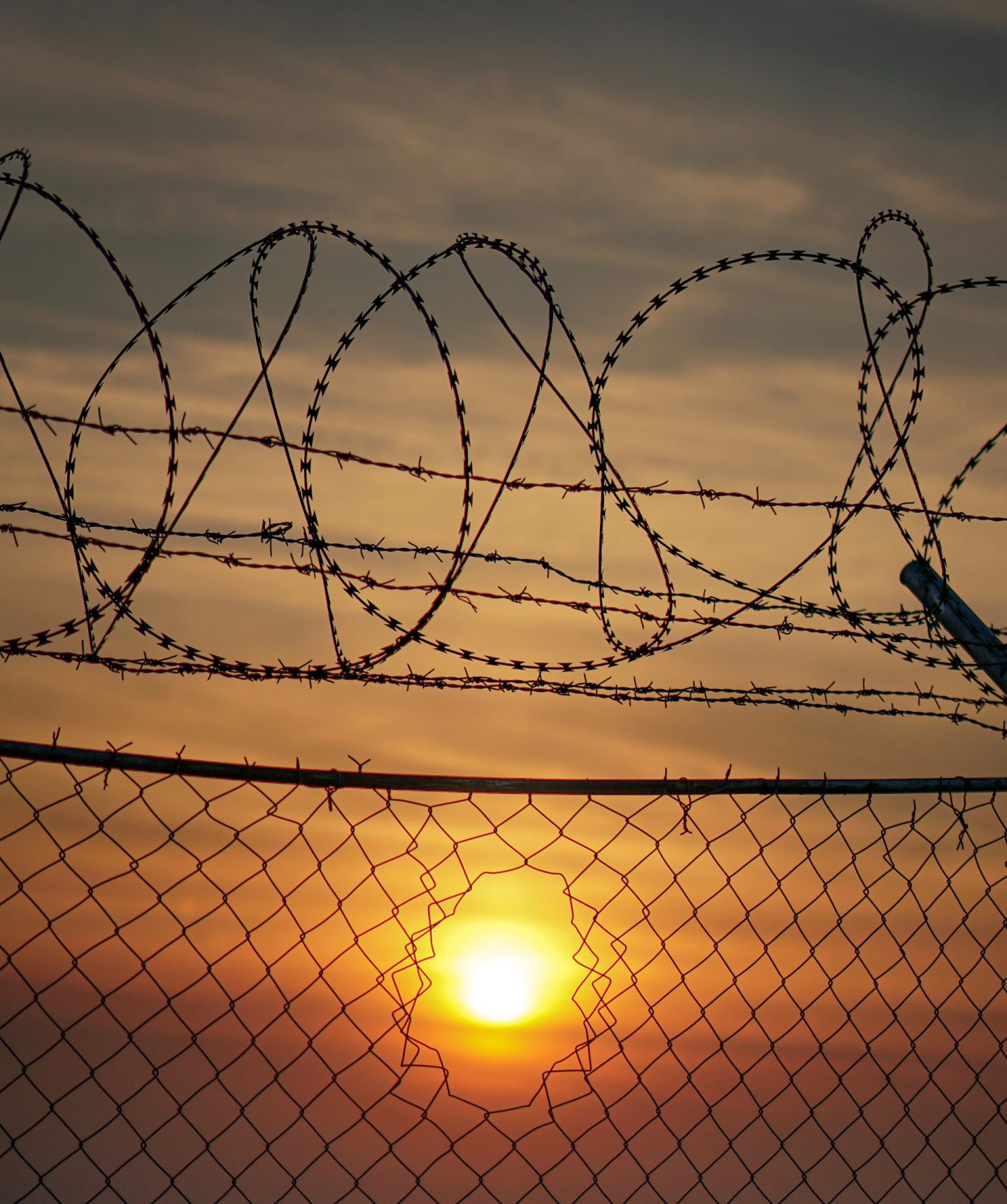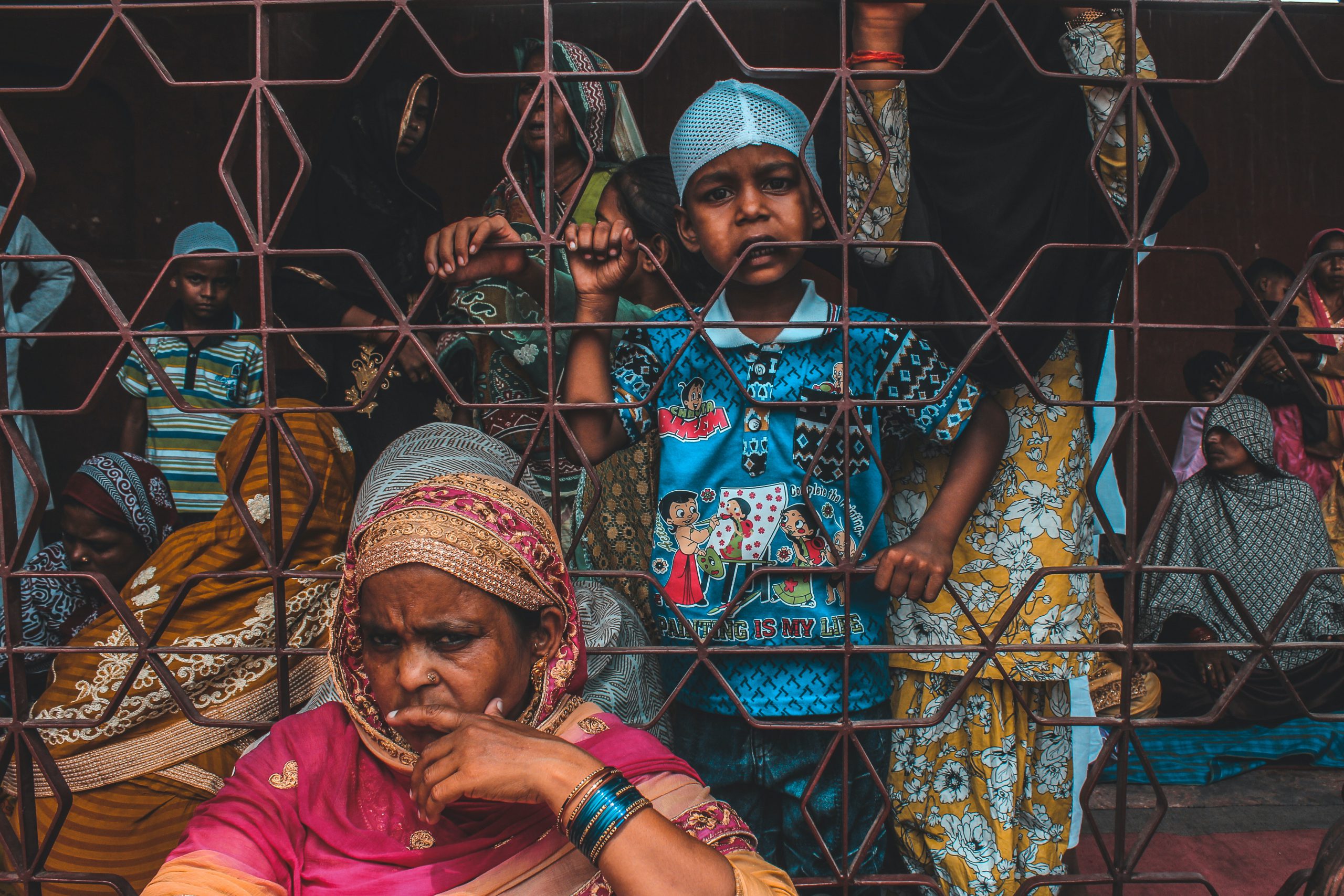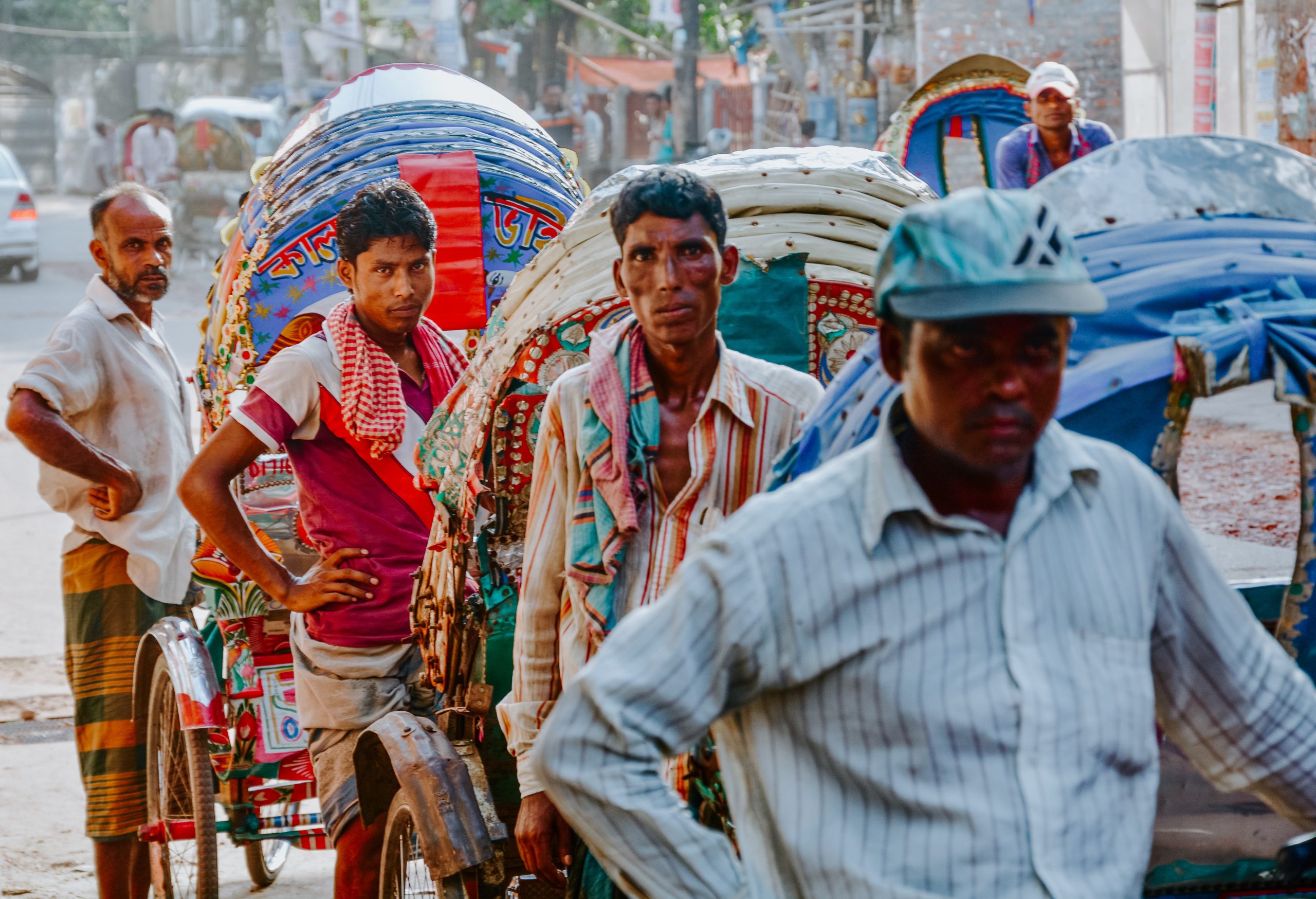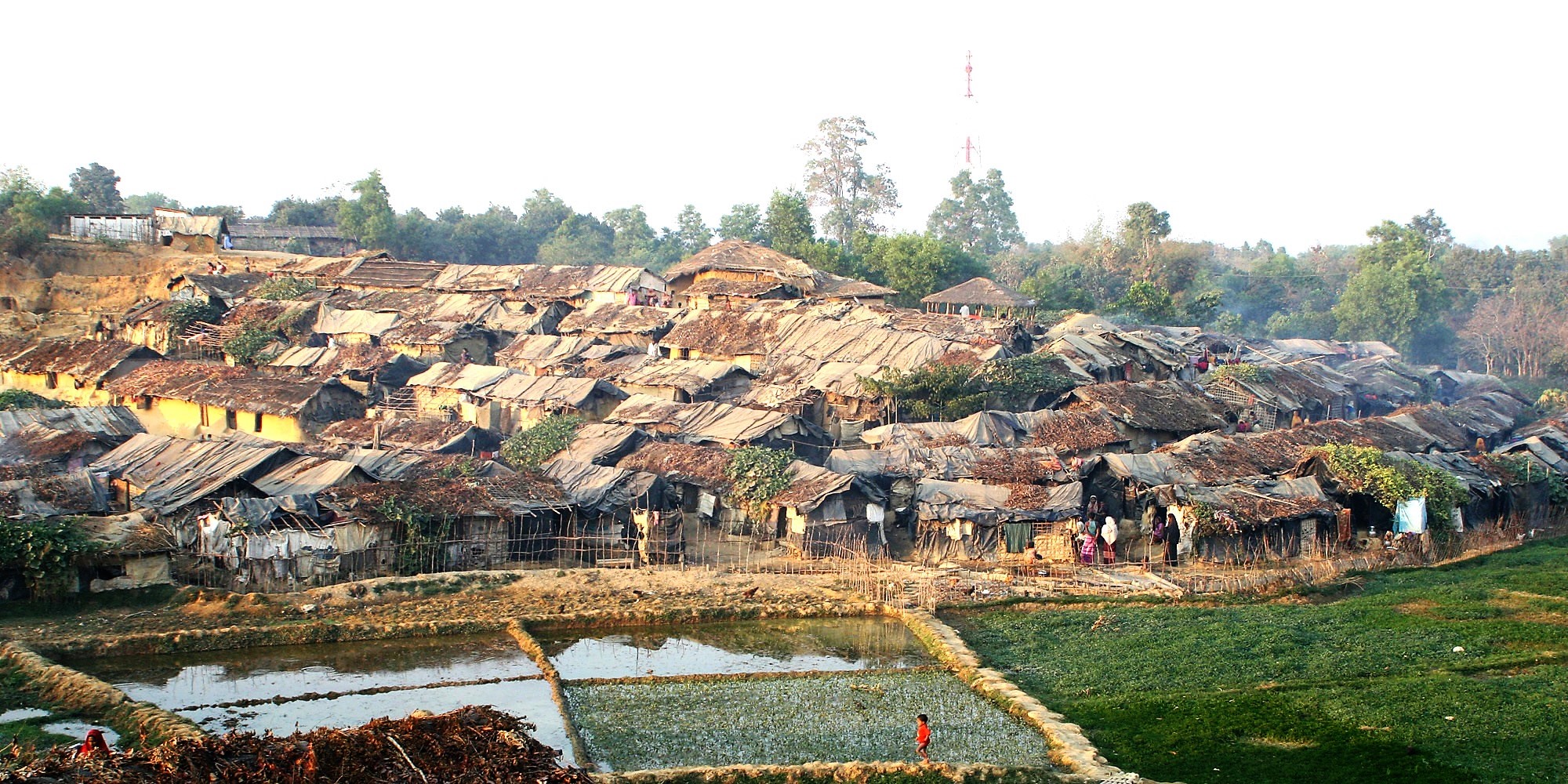Empathise With Rohingyas But Please Deport Them
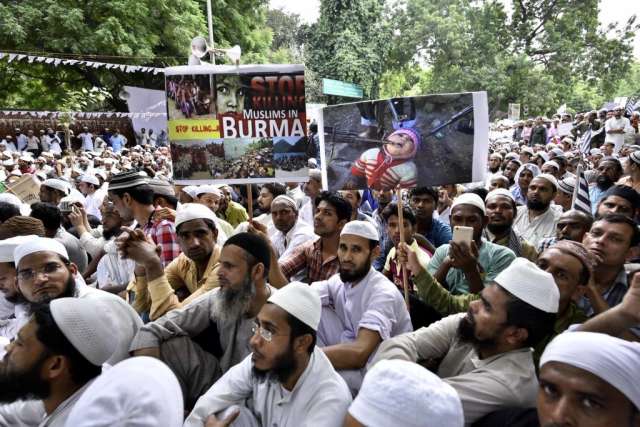
Empathy, the capacity to feel another being’s pain, is a highly valued emotion in most cultures. We are encouraged to nurture this trait from a very early age and are so deeply conditioned to act on empathetic impulses that it really becomes second nature to us. Cursorily, it makes complete sense for things to be this way because we believe that empathy leads to kindness and a society that regards kindness as a cardinal value has truly transcended its barbarous limitations. If only this were an unqualified axiom!
In his book provocatively titled Against Empathy, moral psychologist Paul Bloom nearly demolishes the modernist myth that assigns empathy a place in our collective imagination hitherto only reserved for the divine. By his eloquent assault on the received wisdom, which supposes that empathy can only lead to the good of society, he reminds us that intimately knowing another’s pain is a quality that is almost nurtured to the level of a skill by the sadist and the psychopath. He then proceeds to hurl at us the most potent utilitarian conundrum in the form of an innocent question: Why do people get transfixed by a girl stuck in a well while remaining largely indifferent to an impending environmental catastrophe? Empathy.
It goes without saying that the prospect of rivers drying up in India is far more consequential a matter than the self-inflicted misery of a suicide victim. Yet the media attention given to the former is not even a fraction of that provided to the latter. Bloom, therefore, argues that an objective assessment of facts is a much more reliable path to institutionalising kindness in a society. We may, of course, choose to empathise with all and sundry in our personal lives at our own peril, but gut reactions, no matter how righteous they may be, have no place in political policy. Compassion that is grounded in rationality is the only recourse available for a society that would be kind without being self-destructive. The aftermath of the immigration crisis in Europe is a pertinent cue.
Rohingya Muslims In India
Rohingya Muslims have had a long history of conflict with the state of Myanmar and much violence has taken place in the regions populated by the community since the country’s independence. In line with the stance taken by the Government of India, we would do well to avoid sitting in judgement on what is essentially Myanmar’s internal dispute. However, owing to the long history of this conflict, it must be kept in mind that Rohingya Muslims’ presence in India has preceded the outrage in their name by almost a decade. With each new wave of violence in Myanmar, India has had to involuntarily bear the burden of thousands of refugees, who cross over into Indian territory from Bangladesh. These illegal immigrants are now living in various parts of India, most significantly in settlements in the troubled state of Jammu and Kashmir (J and K), which also happens to host one of the largest concentrations of Rohingya Muslims in India.
Not surprisingly, it was Jammu where the matter first came to light after a series of protests by the locals, who feared for their own safety and security amidst increasing size of the settlements in the outskirts of the city and the ensuing frequent tensions. However, these local protests, which had been going on for years, were largely ignored by the national media and the central government till recently, when the crisis in Myanmar acquired the dimension of a global humanitarian crisis and India found itself at the risk of having to play the role of being the principal asylum destination for those fleeing the violence. The government took a most reasonable stand by sealing the borders and expressing the intent to deport those Rohingya Muslims, who had illegally entered the country in the past.
Soon a petition was filed in the Supreme Court by two Rohingya refugees pleading against the intended action of the government on several grounds, including violation of international human rights conventions. Senior advocate Prashant Bhushan put his weight behind the petition, appealing to the court to urgently hear the matter. The Indic Collective, of which the authors are members, quickly intervened in the petition filed by Bhushan as we have serious concerns about the impact of a deliberate influx of thousands of stateless people into India. We enumerate our concerns below and appeal to the reader to consider the arguments in the light of the distinction between knee-jerk empathy and considered compassion that we touched upon in the introduction to this article.
Security Threat
As mentioned above, the Rohingyas have already been allowed to settle in Jammu and Kashmir – especially in Jammu. J and K being a troubled state with a history of terror and ethnic cleansing of the minority Hindu population, the government is, first and foremost, duty-bound to work out the remedial measures for bringing back the Kashmiri Hindus by defanging the separatist movement going on in the state. There is good reason to believe that the influx of Rohingya Muslims in the state creates great obstacles on this path. As is common knowledge among the locals of Jammu and Ladakh, rehabilitating Rohingyas in these parts is not a spontaneous outpouring of kindness but an orchestrated plan to reinforce Kashmiri separatism by a systematic demographic alteration in Jammu.
According to the affidavit submitted by the Government in the Supreme Court, intelligence inputs have suggested links of some Rohingya immigrants with Pakistan-based terror groups. As per the affidavit:
Rohingya presence in the country has serious national security ramifications, and it poses national security threats. Illegal influx of Rohingyas into India started in 2012-13 and inputs suggest links of some of the immigrants with Pak-based terror groups
Further, Swarajya columnist General Syed Ata Hasnain has also indicated that the flood of Rohingya refugees could pose a security risk to India.
Targets For Radicalisation
Stateless people can be easy victims of radicalisation and Rohingya Muslims are no exceptions. This 2009 report mentions Arakan Rohingya Nationalist Organisation (ARNO) and Rohingya Solidarity Organisation (RSO) being trained in various Al Qaeda and Taliban camps in Afghanistan. In another case, a Bangladeshi-British Al Qaeda operative was arrested in Delhi while he was on a visit to India to train Rohingya Muslims in the nuances of terror.
There have been numerous other reports of Pakistan-based operatives influencing and radicalising the Rohingya community, which poses a serious threat to national security. Between acting preemptively against potential threats and corrective measures after the Pakistan-based terrorists have executed their plans on Indian soil, there is hardly any room for negotiation and we know what the Indian people would choose.
Collateral Damage
In accordance with the demands of their faith, many Indian Muslims have always shown a remarkable degree of solidarity with Muslims in other parts of the world. But matters don’t end with only an expression of unity. Take the case of the Azad Maidan riots on 11 August 2012, which happened when a rally organised to show solidarity with the Rohingya crisis in Myanmar got out of control, turned violent and resulted in great mayhem. Likewise, an Indian Mujahideen operative arrested in connection with the terror attack in and around Mahabodhi Temple in Bodh Gaya on 7 July 2013, revealed that the motive of the attack was to avenge the violence against Muslims in Myanmar.
The government’s statement in the court also substantiates the apprehensions of a possible security threat to the various shrines and Buddhist communities in India.
There is a serious possibility of eruption of violence against Buddhists who are Indian citizens and who stay on Indian soil by radicalised Rohingyas.
Learning From History
We must also learn our lessons from history. Assam has been witnessing violent conflicts over the rising population of Bangladeshi immigrants since the late 1970s. The Kokrajhar riots of 2012 were extremely violent. The demographic change, social and cultural tensions caused by the continuous inflow of Bangladeshis is not just restricted to Assam now. According to the Hazarika report, there is an institutionalised mechanism that enables the Bangladeshis to infiltrate into India and acquire the documents required to feign citizenship.
The government concedes that around 20 million illegal Bangladeshi migrants are staying in India. In an overpopulated, underdeveloped country struggling to tackle poverty, the socio-economic and political outcome of such a huge burden is anybody’s guess.
An even more poignant lesson from history is the Partition of India along religious lines. If we are to avoid a repetition of the horrible events of 1947, we must never lose sight of the political developments that led to the division. In his meticulous study on the subject, Venkat Dhulipala argues that “Pakistan was not simply a vague idea that serendipitously emerged as a nation-state, but was popularly imagined as a sovereign Islamic state, a new Medina, as some called it.” Just a brief exposure to the vitriolic display of some Islamic clerics and hardline politicians in the past few weeks gives one a good idea of the undercurrents at work. Only by a total denial of historical realities of the emergence of Pakistan can we truly take the calls for “solidarity of the Muslim Ummah” at face value and not stare at a looming second partition.
The Principle Of Refoulement And Other Non-Sequiturs
In the face of all the above risks, the last refuge of those advocating for asylum to Rohingyas is the supposed applicability of international conventions to the present issue. Nevertheless, much to their disappointment, India is not a signatory to the 1951 United Nations Refugee Convention and its 1967 Protocol. Hence, India doesn’t have any legal obligation whatsoever to follow the UN guidelines in this respect. The reason for India’s reluctance to join the convention in the first place also rallies around the lack of resources for an emerging nation to deal with an excessive inflow of population and the higher level of the security threat that the conflicts and displaced communities cause in South Asia.
As J Sai Deepak elucidates in this podcast, even if the principle of non-refoulement were applied to India, we would be factually and legally justified in deporting Rohingyas to Bangladesh for two major reasons. First, most Rohingya Muslims first land in Bangladesh before making their way to India and according to international law, Bangladesh, as the first country that receives the exiled people, has the primary responsibility of taking care of them and as a dependable neighbour, India can provide Bangladesh with material support. Second, since Bangladesh is not persecuting them, deporting the refugees to Bangladesh fully conforms with the principle of non-refoulement.
There is also a third reason that further fortifies the case for deportation – the assurance given to the international community by the Nobel Peace prize recipient and State Counsellor of Myanmar, Aang Suu Kyi, regarding the safety of those Rohingya Muslims, who return to their home country. This is significant, for while there are allegations that the Myanmarese state is sponsoring the persecution of Rohingyas, the same has not been proved yet. Therefore, since Myanmar is willing to take them back, its assurances must be taken at face value with international agencies monitoring them.
Last but not the least, while Rohingyas can expect to be treated with dignity under Indian law despite being illegal immigrants, they don’t have the right to settle here. The Supreme Court interprets the Foreigners Act, 1946 in Mr Louis De Raedt and Ors vs Union of India and Ors. [1991 AIR 1886: 1991 (3) SCC 554] as follows:
13. … The fundamental right of the foreigner is confined to Article 21 for life and liberty and does not include the right to reside and settle in this country, as mentioned in Article 19(1)(e), which is applicable only to the citizens of this country. It was held by the Constitution Bench in Hans Muller of Nurenburg v. Superintendent, Presidency Jail, Calcutta and Ors, [1955] 1 SCR 1284 that the power of the Government in India to expel foreigners is absolute and unlimited and there is no provision in the Constitution lettering this discretion. It was pointed out that the legal position on this aspect is not uniform in all the countries but so far the law which operates in India is concerned, the Executive Government has unrestricted right to expel a foreigner…
Empathy Is Not Enough
Islamist terrorism is now a global phenomenon, and India has been at the receiving end for several decades. On the other hand, India is the natural habitat for the cultures that have originated in India or have had a long history of civilisational camaraderie. The near perfect assimilation of the Tibetan community in India is in stark contrast with the results of Bangladeshis settled in Assam and areas adjoining Bangladesh. As many intellectuals have only recently discovered, India/Hindus have a timeless history of providing asylum to people persecuted in various parts of the world, including the Jews, Syrian Christians, Zoroastrians, Chakma Buddhists of Bangladesh and many others. The Indian state owes it to its people to preserve the culture and way of life of its diverse communities that have peacefully coexisted and enriched each other for millennia.
The Supreme Court has already taken note of the devastating effects of illegal Bangladeshi immigration on the demographics in Assam and has issued strict directions to the Central government to fence and man the eastern border of the country. It has further taken note of the cultural rights of Indians under Article 29 to expect protection from cultural invasion through illegal immigration. The same logic applies to illegal immigration by Rohingyas as well.
Given that there is no substance in the arguments of those who thrust the UN Refugee Convention down our throats in a misplaced attempt to sound reasonable, they try other means to influence the state and confuse the public. They strive to sway public opinion in their favour by appealing to the nation’s sense of empathy. The numerous op-eds that have been written along these lines often carry pictures of women and children, with the overt purpose of moving us to tears. To that extent, they are successful and no one can deny the tragic aspect of having to close the doors on innocent victims of violence. But let us be rational and avoid taking silly decisions based on gut reactions because the tragedy unfolding in the neighbourhood today has all the chances of becoming a national calamity for us tomorrow. The anticipated threat to national security will not make an exception for our children.
This article was first published on Swarajya.


